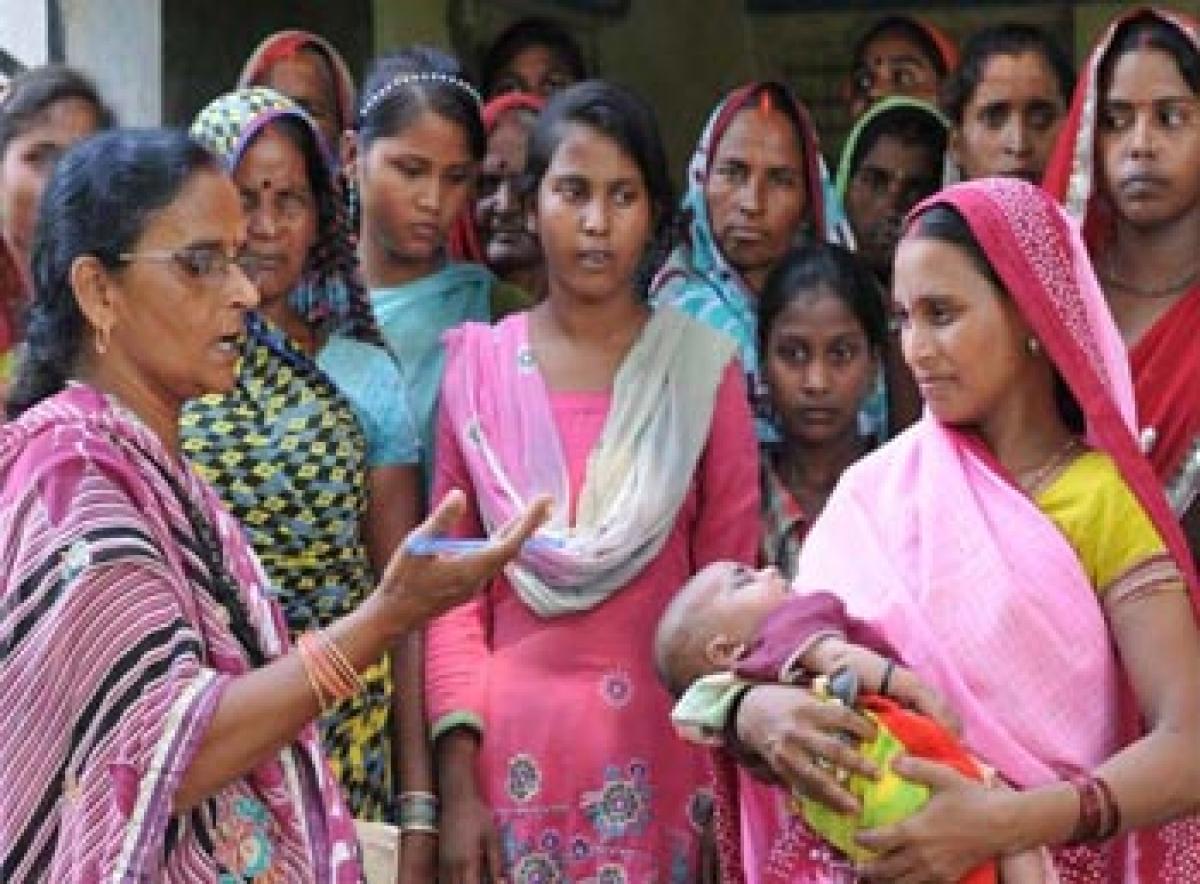Accredited Social Health Activists

Accredited Social Health Activists (ASHAs) is community health workers instituted by the Government of India\'s Ministry of Health and Family Welfare (MoHFW) as part of the National Rural Health Mission (NRHM).
Accredited Social Health Activists (ASHAs) is community health workers instituted by the Government of India's Ministry of Health and Family Welfare (MoHFW) as part of the National Rural Health Mission (NRHM). One of the key components of the NRHM is to provide every village in the country with a trained female community health activist. Selected from the village itself and accountable to it, the ASHA will be trained to work as an interface between the community and the public health system.
ASHA must primarily be a woman resident of the village married/ widowed/ divorced, preferably in the age group of 25 to 45 years. She should be a literate woman with due preference in selection to those who are qualified up to 10 standard wherever they are interested and available in good numbers. This may be relaxed only if no suitable person with this qualification is available.
ASHA will be a health activist in the community who will create awareness on health and its social determinants and mobilise the community towards local health planning and increased utilisation and accountability of the existing health services. ASHA will provide information to the community on determinants of health such as nutrition, basic sanitation & hygienic practices, healthy living and working conditions, information on existing health services and the need for timely utilisation of health & family welfare services.
She will counsel women on birth preparedness, importance of safe delivery, breast-feeding and complementary feeding, immunization, contraception and prevention of common infections including Reproductive Tract Infection/Sexually Transmitted Infections (RTIs/STIs) and care of the young child. The ASHAs will receive performance-based incentives for promoting universal immunisation, referral and escort services for Reproductive & Child Health (RCH) and other healthcare programmes, and construction of household toilets.
She will act as a depot older for essential provisions being made available to all habitations like Oral Rehydration Therapy (ORS), Iron Folic Acid Tablet(IFA), chloroquine, Disposable Delivery Kits (DDK), Oral Pills & Condoms, etc. She is paid Rs 40 for registering a pregnant woman, Rs 200-250 for each institutional delivery and Rs150 for each family planning procedure. The Asha workers are now demanding fixed wages at Rs15,000 per month to be paid by the State governments. Usually, an ASHA worker earns from Rs 700 to Rs 1,000 a month, depending on the areas and tasks she performs.














